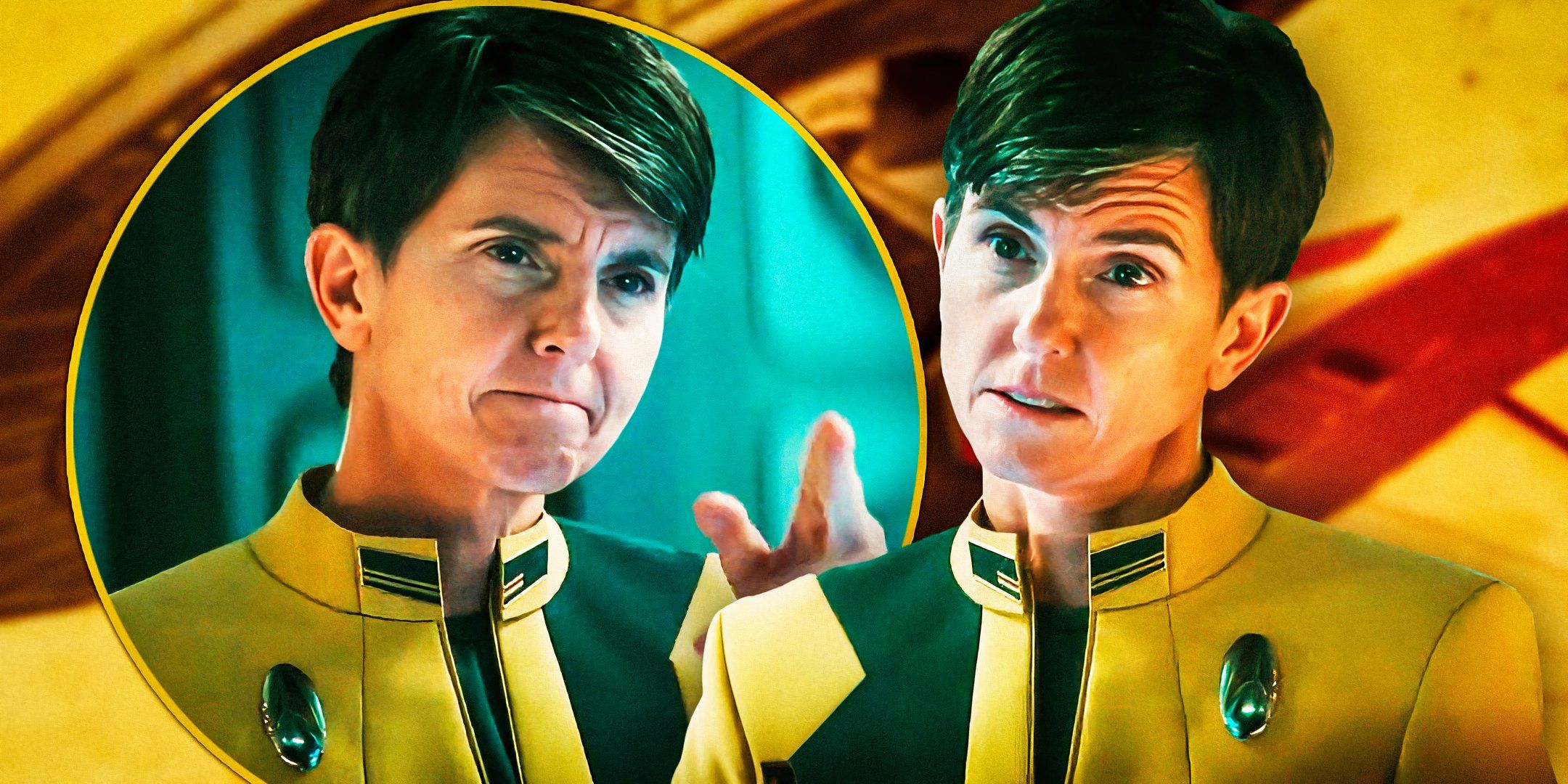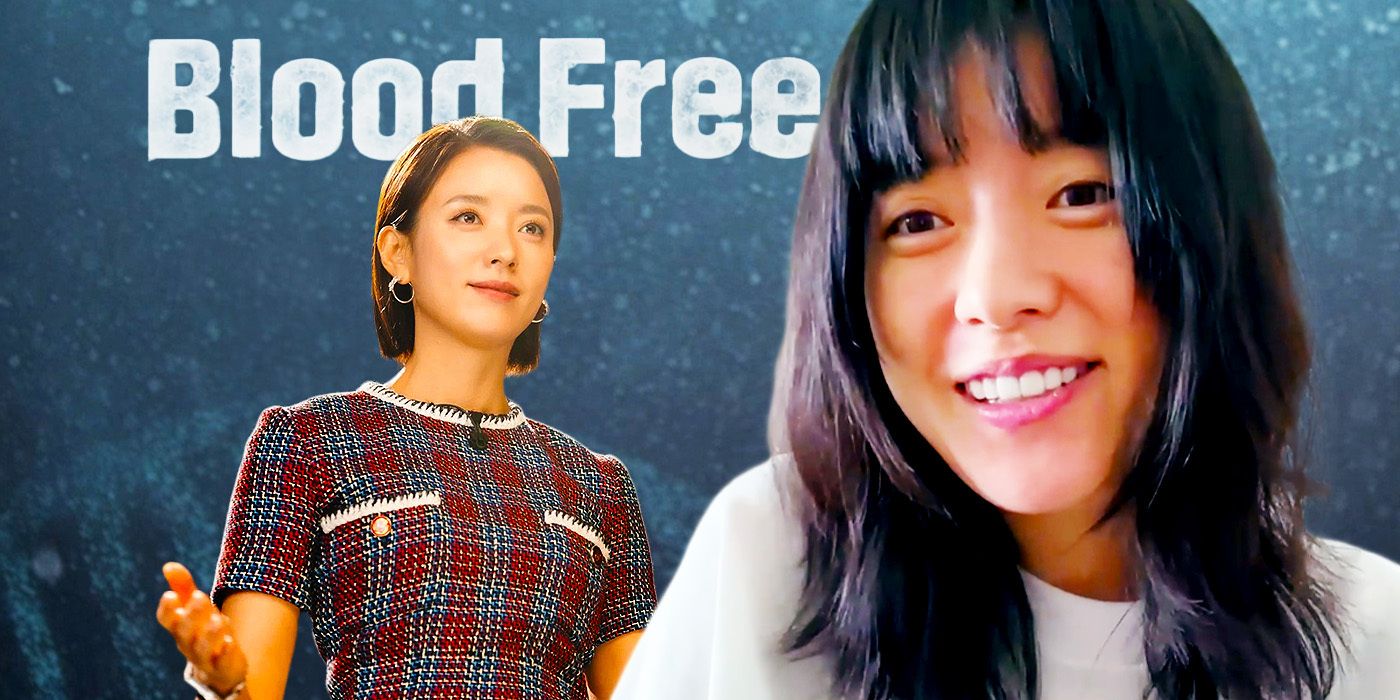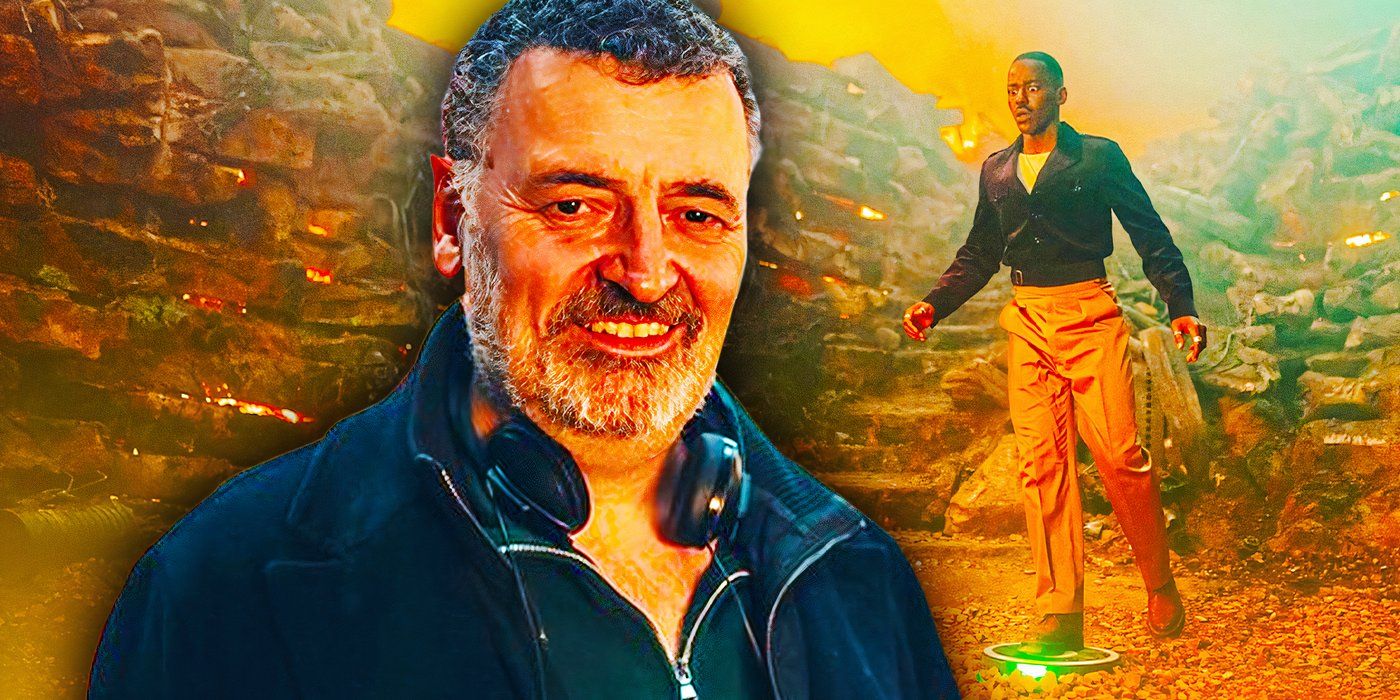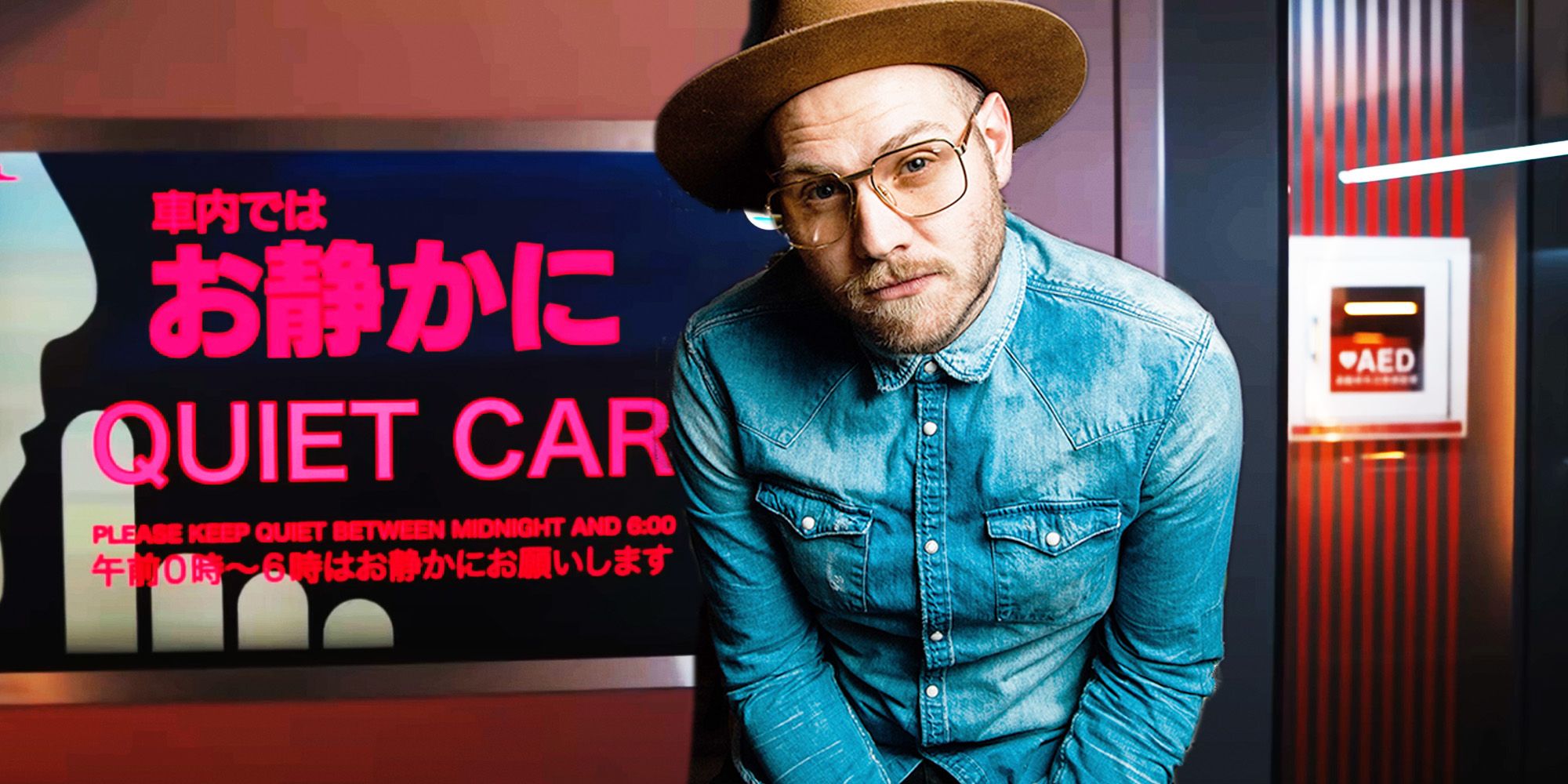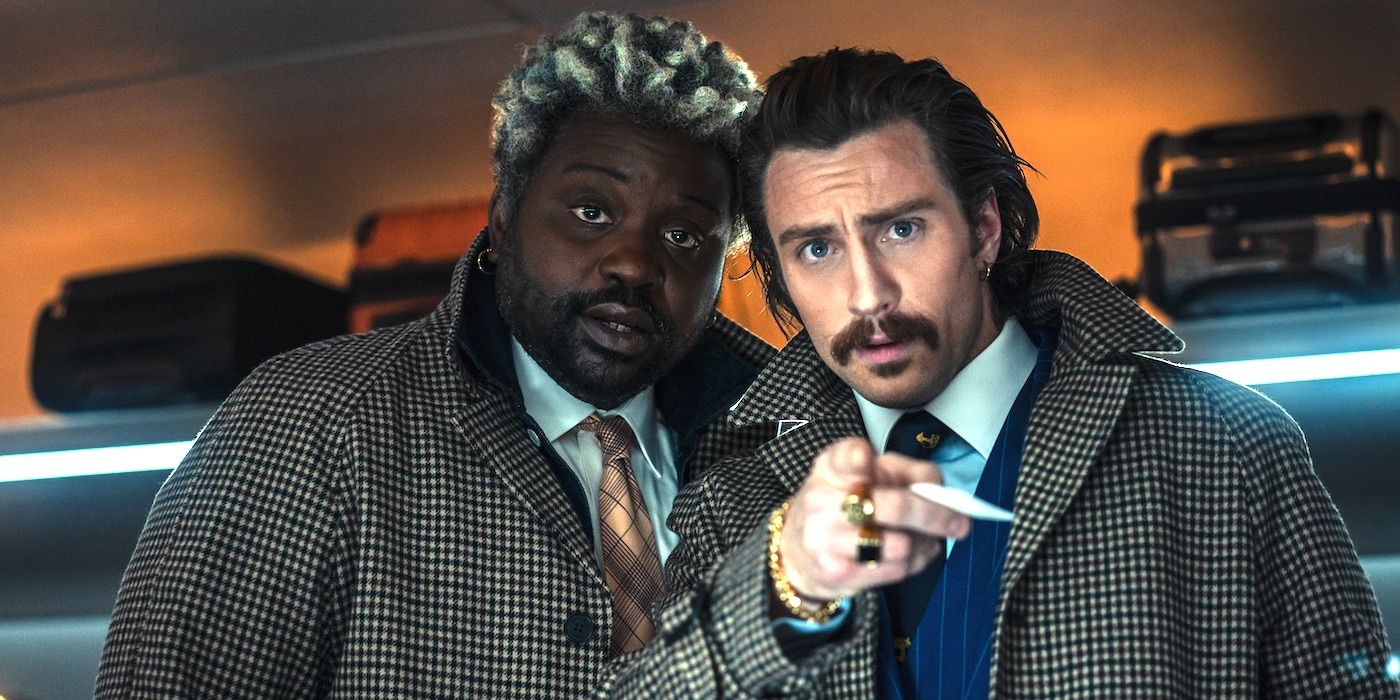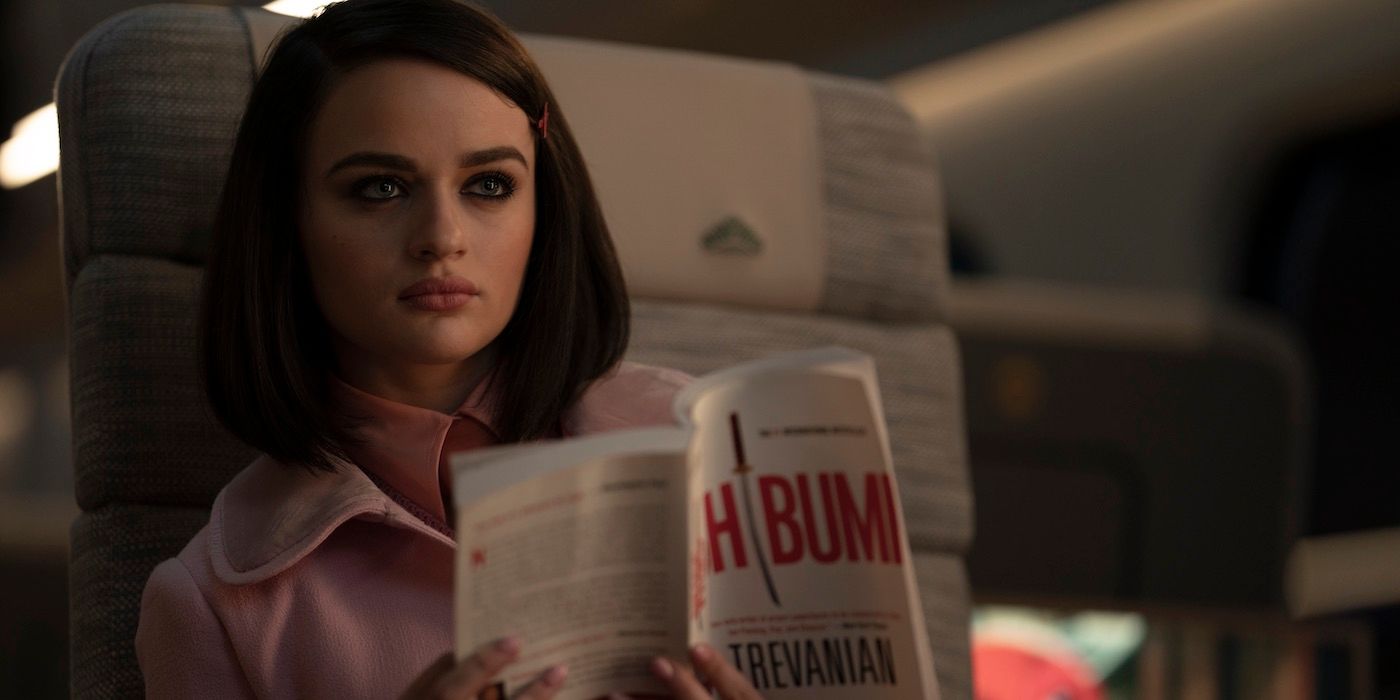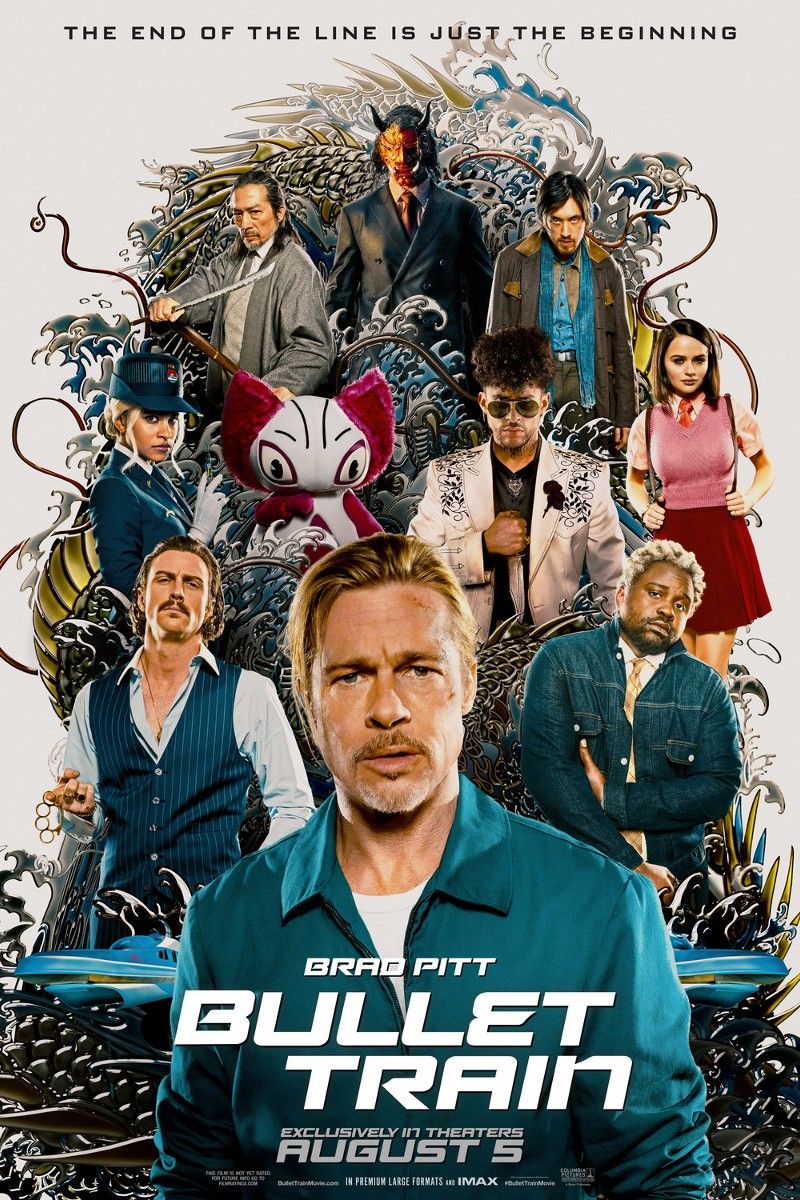Bullet Train was just released in theaters, offering audiences another serving of the signature mix of unique action and quick comedy that has come to define some of director David Leitch's biggest hits. The film follows the story of Ladybug (Brad Pitt), an assassin who finds himself trapped on a train with a number of unsavory characters out for blood. As everyone's goals twist and tangle, Bullet Train ramps up the spectacle to delightful effect. Other notable stars of the film include Atlanta's Brian Tyree Henry, Kraven the Hunter's Aaron Taylor-Johnson, John Wick 4's Hiroyuki Sanada, and The Princess' Joey King.
In addition to its stunning action sequences, Bullet Train succeeds in its off-the-rails musical score. Composed by Dominic Lewis, the score for Bullet Train mashes musical genres and instrumentation in much the same way that the film brings together its disparate array of characters. Originally envisioned as a concept album, Lewis' score for the film may draw from a variety of sources, but ultimately defies expectations and classification.
Dominic Lewis is originally from London, England, and began his career as a composer under the mentorship of master film scorer Rupert Gregson-Williams. Lewis eventually came to collaborate with other well-known composers such as Hans Zimmer, Henry Jackman, and Mychael Danna before establishing himself thanks to his work on projects like The Man in the High Castle and The King's Man.
Lewis spoke with Screen Rant about blending musical styles and the fun of working on Bullet Train.
Screen Rant: I was totally amazed by this score, because it's chaos - the score is anarchy - but it never distracted from the movie at all. Was it hard to strike the balance between going to all these different places in the score and making sure that it never distracted from the action or the story?
Dominic Lewis: This word is used way too much, but it was actually a really organic process. Oftentimes as a film composer, you're required to be in, but not do much and just support. Whereas, because David is such a needle-drop-oriented guy anyway, the decision for music was so deliberate that you need to hear music. It's not a question of, like, being in the background and doing that thing that we normally do as film composers, which is that we're just felt and not really heard a lot of the time.
Where the approach to this one was like, "We want to hear music. It needs to be a part of the tone. It needs to be a part of every character." And it plays a major role in the film. So, right from the beginning, the directive was "Be bold. Be courageous. Go big, or go home," basically. And David said, "Just swing for the fences, and I'll rein you in if it gets too much." And just to be given that freedom and that trust is so rare, and I think that's why it's so crazy.
I mean, the movie's crazy, obviously. But I was able to go in whatever direction I wanted, whatever genre I wanted to do. We were confident from the start that the thematic material, and this whole idea that I came up with that it's kind of a concept album score, would make everything work together.
Did you have any specific influences that you drew from? I feel like there were moments that sounded like Ennio Morricone, and just everything.
Dominic Lewis: I mean you say everything, and that's correct. Morricone would definitely be in there, because as a film composer, how can you ignore that influence? But it's the same - how can you ignore The Beatles' influence? Or anyone that is in my record collection; subconsciously they're all swimming around up in my brain. It wasn't a conscious decision to rely on any one genre or specific influence. It was just whatever came out of my head at that point, and whatever I felt was right, being influenced by the script and the amazing images and amazing performances.
Because I was on this thing from before they even shot a frame. So I had total mad-scientist-in-his-lab freedom to just come up with stuff and go nuts, based on the script. And obviously, I'd get dailies, and I'd change some sort of approaches to things, but when I say I was given a blank canvas, I really was. It was like, "You do what you do," and David said, "If I need to steer you in any direction, I will."
But we were on the same page from the get-go, so it was such an amazing process to be let loose and be free to use whatever genre, whatever influences just came out. And honestly, I didn't go and specifically listen to things, or - because I've sort of done that in the past - I didn't want to do that. I just shut myself off and just relied on my brain, and whatever was floating up there at the time just came out, based on whatever character it was. I'd sort of give them a musical background of taste.
For example, Prince. She's Russian, but she went to boarding school in England, so she'd have Russian influences but also have English influences. English bands, and - not even English. I wanted to give her a Gen Z vibe, and I also wanted to give her a psychopathic killer vibe. That's why she's got two sides to her theme. She's got that, like, trip-hoppy, more sort of classical psychotic side, and then she's got that '90s grunge Gen Z side which is more fun. So, I was just going mad, in a good way. Having fun going mad, and just kind of exploring things.
And that's not usual, right? That you would get on board a project like this so early?
Dominic Lewis: No.
Is that a David Leitch thing? How'd that happen?
Dominic Lewis: I'm not sure, actually. This is my first project with David, so this was just the way that we decided to do it on this one. Because it was - everyone knew that it was going to be so musically powerful and nuts, so we kind of needed the time to kind of explore ideas. We didn't want to be chained to that usual three months of doing a film. This whole process of being able to do it over a year allowed the experimentation and allowed us to try different things.
In the beginning of this, a lot of the really evil characters like the White Death and Prince were really dark. I hadn't seen any footage yet, so I was just going off the script. And once David got off set and we were able to chat and stuff, we could sort of mold it better to the popcorn fun side of things. And some of those darker elements stayed, but it was really great having that time to just explore. Normally, if you're on a movie for a year, it'd be like "Oh, something's gone wrong, and I just want to get off it. I'm so done with it." But I never got tired, I was constantly creating because I was given so much freedom, and that's kind of where I want to be. I want to be given that freedom and have that time to explore.
That's amazing. Something else I thought was really unique to what you did here is that we'll get halfway through a cue, and then all of a sudden someone starts singing, and it's like, "Wait, is this a song now? Has this been a song this whole time?" What made you want to do that?
Dominic Lewis: Yeah, that was the whole approach. My pitch, when I didn't have the gig and was trying to get it, was "How do you come up with a score that sounds like the perfect needle drop?" So often, we try songs up against a scene, and it works for 20 seconds and then kind of falls flat - and you end up going with a different song that isn't quite as good in those 20 seconds, but that does better through the whole sequence. It's not a very nice game when you're playing with needle drops; you're trying to find something, and it's really hard.
With David obviously being that needle drop guy, I wanted to give him that. But I also wanted to be able to tell a story like a score does, because nothing tells story like score can, and really gets down and dirty with the story and the arcs of the characters. So, that was the whole concept. I wanted there to be very little to distinguish between the songs and the score.
At any point, you could be like, "Oh, this is a song. No, wait a minute, it's a score. Oh. It's kind of the same thing." And I also - I wrote a couple of songs for this, and I produced a couple of songs for this, so the music is all coming from the same person, a lot of the time. Which is why you have those moments where I just kind of start singing in the middle of a score cue, to straddle both those things, score and song. I wanted there to be a very blurry line between the two.
In doing some research on you, it seems like you play pretty much every instrument. So, congratulations on that.
Dominic Lewis: Not every instrument! That's very kind, but no, I'm limited. I play a few things, you know.
You play cello, you sing, you play guitar and piano... But the question is, how much of the score did you do by yourself, and when do you bring in other instruments or musicians?
Dominic Lewis: Honestly, it's kind of a lot of it. Because it was the middle of lockdown, we were all going mad anyway, and then I was in the studio, and I've got all these instruments, and I was just playing around. And I think that's why the score has that raw band feel, because it's me playing most of those instruments. I'm not a drummer, so I got the amazing Matt Chamberlain in to do the rock drums and the live-sounding drums. And obviously, there are loads of synth drums and stuff and I'm just mucking around playing with synths.
But yeah, it really did feel like - I don't know if you've seen that Dave Grohl special. That 20-minute special, where he's just like walking around his studio building up loads of different guitars, and organs, and drums, and he's just playing everything. I sort of felt like that. I felt like a one-man band. And it's been such a long time since I've been in my band and been able to do that. And I'm not great, so I think it's got that "it's all about attitude" vibe, as opposed to being perfect.
A lot of the time as a film composer, you get in these insane musicians that are just absolutely perfect, because they have to be. They've got 50 cues to do in an hour, and they just rattle through because they're insane and they've been practicing for 8 hours a day for most of their lives. That's not me. I'm all about, you know, just using my ear and just winging it. I think that's why it's got that raw vibe to it. It's got that very specific attitude to it, because that's what I wanted. I didn't want it to be perfect.
I wanted it to sound like four guys got together in the '70s and were like, "Hey, do you want to start a band?" "Yeah, cool. I play a bit of guitar." "Well, I play a bit of bass." Because back then, that's how those bands started. They didn't go to music school. They didn't train for hours and hours. Music was in them, and they had attitude, and they had vibe, and obviously they got more experienced the longer they went on. And that's sort of what I wanted to create. I wanted to create that illusion, that it's some kind of band that maybe didn't quite make it, and had one hit, and they were okay.
The whole movie is so fun, but is there one sequence, or one music cue that you're particularly excited for people to see in the theater?
Dominic Lewis: I don't know, it's such a journey. I'm so proud of the whole thing. All those cues are all of my children, and it would sort of be wrong to choose one. But if I did have to single out my favorite - because let's face it, every parent's got a favorite kid, they just don't admit it - I mean, there was that track that was released yesterday [August 3rd as of this interview], comingsoon.net released one of the tracks from the score yesterday. It's sort of the fate stuff that I came up with, and there's a singer on there, and it's really kind of my first exploration into this sort of '70s old record feel that I wanted to create. I really do love that piece of music, I'm very proud of it, and I also think the images it's accompanied with are so powerful.
But again, there's another moment that I love. I'm trying to think of how to say it without a spoiler. There's a moment where the camera pans in on Brad, and he says a cool line, and then it cuts straight to a huge wide shot of the bullet train coming into the Kyoto station with the White Death and his henchmen on the platform. And it's like this massive '70s rock explosion, and I got to really let go with my vocals, and sort of scream out the melody. It's not necessarily my favorite piece of music, but when you watch it with the film, it really smacks you between the eyes.
Check out our other interview with Bullet Train stars Hiroyuki Sanada as well as Brian Tyree Henry & Aaron Taylor-Johnson.
Bullet Train is in theaters now, and its soundtrack is available everywhere music is found.


